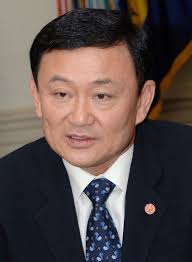The Shinawatra Family: Influences on Thailand’s Politics

Introduction
The Shinawatra family has been a dominant force in Thailand’s political landscape for over two decades. With ties to two former Prime Ministers, the family has played a critical role in shaping Thailand’s policies and governance. Their influence extends beyond politics, affecting economic strategies, foreign relations, and social movements within the country. Understanding the nuances of the Shinawatra legacy is essential for grasping the dynamics of contemporary Thai politics.
The Shinawatra Legacy
The most notable member of the Shinawatra family is Thaksin Shinawatra, who served as Thailand’s Prime Minister from 2001 to 2006. Known for his populist policies, Thaksin introduced healthcare reforms and rural development programs that gained immense popularity among the poorer segments of society. However, his government faced allegations of corruption and abuse of power, culminating in a military coup that ousted him in 2006.
Following Thaksin’s exile, his sister, Yingluck Shinawatra, took the political stage, becoming Thailand’s first female Prime Minister in 2011. Yingluck continued her brother’s legacy by promoting rice subsidies and social welfare programs. However, she too was implicated in corruption scandals, leading to her removal in 2014 by the Constitutional Court.
Recent Developments
Although the Shinawatras have faced numerous political challenges, they continue to maintain significant support among their base. Following the 2023 Thai general elections, Pheu Thai Party, which has roots in the Shinawatra legacy, garnered a substantial number of seats, indicating the family’s enduring influence. The party’s positioning as a beacon for populist policies suggests that the Shinawatras are not entirely sidelined in Thai politics.
Conclusion
The Shinawatra family remains a pivotal aspect of Thailand’s political fabric. Their rise to power and subsequent challenges highlight the complexities of Thai governance, where family legacies can shape the trajectory of political discourse. As the country moves forward, observers are keenly watching how the influence of the Shinawatra family will evolve, with implications for Thailand’s stability and democratic processes. The family’s political journey will remain a cornerstone of Thailand’s narrative, affecting future elections and policy directions.









